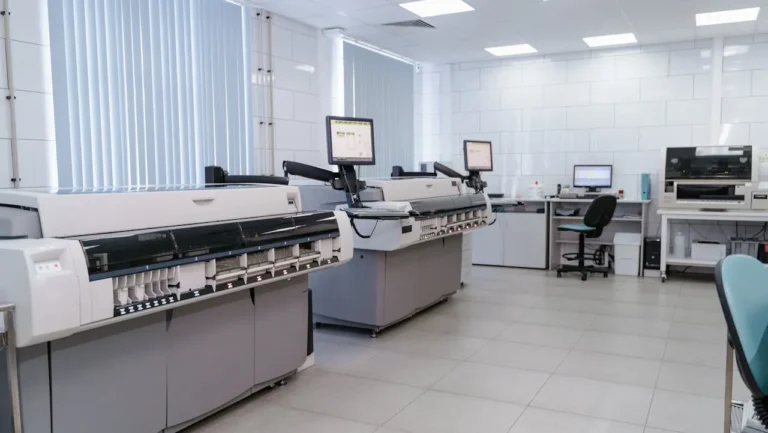
Aptar’s Nasal Drug Delivery System Validated in Landmark Study for Direct Brain Delivery of Alzheimer’s Treatment
Aptar has announced the successful application of its nasal drug delivery system in a groundbreaking brain imaging study conducted by the Wake Forest University School of Medicine. The study, recently published in Alzheimer’s & Dementia: Translational Research & Clinical Interventions, represents a critical breakthrough in the ongoing quest for effective Alzheimer’s treatments. Researchers have confirmed that insulin, when administered via a nasal spray using Aptar’s precision delivery device, can safely and effectively reach vital memory-related regions of the brain in older adults.
This research not only opens the door to new approaches in Alzheimer’s therapy but also offers direct evidence for the first time that intranasally delivered insulin penetrates the brain’s critical areas involved in memory and cognition. The results are particularly significant because earlier clinical trials using intranasal insulin faced skepticism over whether the treatment actually reached its intended brain targets. With this new imaging evidence, the scientific community can now move forward with more confidence in the potential of nasal delivery for neurological interventions.
A New Frontier in Alzheimer’s Therapy
Led by Suzanne Craft, Ph.D., a professor of gerontology and geriatric medicine at Wake Forest and director of the university’s Alzheimer’s Disease Research Center, the study employed positron emission tomography (PET) to track how insulin travels from the nasal cavity to the brain. A total of 16 older adults (average age 72) participated in the trial. Among them, seven were cognitively healthy, while nine were diagnosed with mild cognitive impairment (MCI), a precursor to Alzheimer’s disease.
Participants received a novel radiolabeled form of insulin known as [68Ga]Ga-NOTA-insulin via Aptar’s advanced six-spray intranasal delivery system. The insulin’s movement through the brain was tracked in real-time using a 40-minute PET scan, followed by whole-body imaging. The nasal spray was described by participants as “surprisingly easy” to use, a key factor for potential widespread adoption in therapeutic contexts.
The study revealed several significant findings:
- Targeted Insulin Uptake: Insulin was absorbed in 11 crucial brain regions, including the hippocampus, amygdala, olfactory cortex, and temporal lobe—areas associated with memory, learning, and cognition.
- Differentiated Absorption Patterns: Cognitively normal individuals showed higher levels and more sustained patterns of insulin uptake, while those with MCI displayed a faster initial absorption followed by quicker clearance.
- Sex and Vascular Differences: In women, insulin absorption was strongly linked with cardiovascular health markers, while elevated ptau217 levels—a biomarker for Alzheimer’s—were associated with reduced insulin uptake in several brain regions.
- Safety Profile: Only two participants reported mild, short-lived headaches, confirming the overall safety and tolerability of the procedure.
“This study fills a critical gap in our understanding of how intranasal insulin reaches the brain,” said Dr. Craft. “We now have a clear roadmap for drug delivery directly to the brain, which is a significant milestone in Alzheimer’s research. The discovery that patients with early cognitive decline may absorb insulin differently is equally crucial, as it may explain the variability in treatment response observed in previous studies.”
Aptar’s Role and Broader Implications
The nasal spray system used in the study was developed by Aptar Pharma, a global leader with over three decades of experience in nasal and inhalation drug delivery technologies. According to Reenal Gandhi, Director of Business Development at Aptar Pharma, this study represents a major validation of Aptar’s innovations.
“The results of this study represent a significant step forward in medicine,” said Gandhi. “They validate that our nasal delivery system can safely and effectively deliver drugs to specific regions of the brain. This has massive implications not just for Alzheimer’s, but for a range of neurodegenerative and CNS disorders.”
Aptar’s delivery technologies have long been used in emergency and routine medical care. However, the company sees broader potential for nasal drug delivery systems, especially in treating central nervous system (CNS) conditions. As research in this space expands, Aptar is positioning itself as a full-service partner—from drug formulation and device design to clinical trial support and commercial manufacturing.
Their Orally Inhaled and Nasal Drug Product (OINDP) solutions are designed for reliability, ease of use, and portability. These systems enable fast-onset delivery with precision dosing, which is essential for both systemic and localized therapies.




